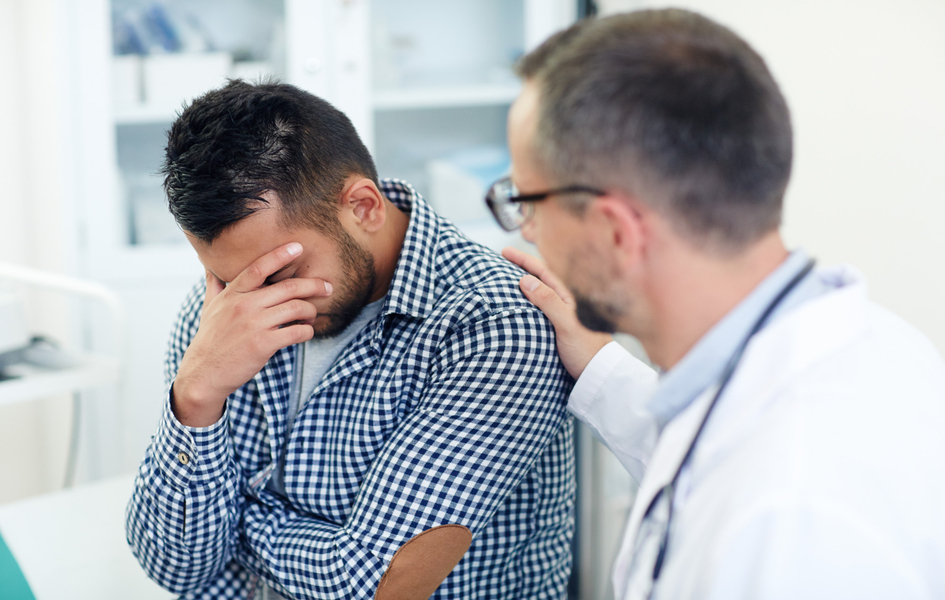Introduction
Being faced with a patient's death as a healthcare practitioner is frequently an unavoidable fate. As their health deteriorates, you may sometimes be able to predict it. Other times, a patient may seem to be in good health but then pass away unexpectedly from an illness.
Regardless of how well you prepare, dealing with death is never simple. When you work in healthcare, you must be in touch with your emotions in order to cope with loss while still maintaining composure and professionalism to provide care for your other patients and the patient's families.
It's crucial to process and cope in the right way with the death of a patient, whether you've previously experienced it frequently in your career or if this is your first experience. Some methods for supporting both yourself and others during this tough time are provided in this blog.
Grief and Stress
Grief following a death can be hidden or unrecognized.
This can happen if you:
-
Had to deal with several losses quickly without having enough time to grieve (sometimes called bereavement overload).
-
Were instructed to suppress our emotions in order to work efficiently.
-
Believe that expressing emotion at work is unprofessional.
-
Are impacted by a death that you are unable to discuss or doing so is stigmatized
-
Hide your sadness and that makes you stressed all the time. Physical signs including weariness, insomnia, and nightmares might be present. Both your personal and professional lives may be impacted by this.
Permit Yourself to Grieve
You will discover a lot about your ability to care for another person as your interactions with patients who are dying progress. It will hurt when patients pass away, and you will learn more about your coping skills as a result. Physicians frequently chronicle their feelings and discreetly discuss them with their peers to help them deal with their emotions. Some doctors post their writings after leaving out a patient's sensitive health information in order to support themselves and other people who are grieving.
Death's Effects on a Healthcare Professional
When a patient passes away, the loved ones of the deceased are typically the first priority, and that is understandable. However, those who have supplied the patient with care have also been impacted. If the grieving is not managed appropriately after a patient's death, it can have a detrimental influence on your mental and physical health. When a patient passes away, the stress that results can have an adverse physical influence on how you feel and behave.
On the outside, it could appear that certain medical professionals are more prepared to handle death than others. Some individuals might even think that medical professionals who frequently care for patients who are dying would become used to death. Compassion fatigue is a result of dealing with several patient deaths over time. This occurs as a healthcare professional's emotional stamina wears down over time. It is more difficult for medical professionals to emotionally commit to their work and do their professions as a result of this, which is akin to PTSD.
Additionally, the confidence and productivity of medical workers are impacted by the manner in which a patient passes away. Giving a patient a fatal prognosis reportedly impairs physicians' and nurses' confidence, professionalism, and the patient's impression of trust, according to the majority of respondents. This underlines the need for grief management for medical professionals in order to prevent burnout and continue developing their careers in a healthy way.

Methods to help you cope with the death of a patient
Doctors, nurses, and administrators will see different patient deaths and diagnoses at various stages of their careers. Someone may be particularly affected by death due to a specific relationship they had with the patient or an unanticipated condition.
Here are some methods for dealing with a patient's death.
1. Take Care of Your Needs
Every patient's death is distinct, and it will have a different impact on you. Take advantage of the time you need for yourself. Accept the death, attend to your grief, look for assistance, and engage in self-care. To maintain your body and mind in excellent form, make sure you're taking care of the fundamentals like eating, sleeping, and exercising on a regular basis.
2. Talk to your peers
The death of a patient probably has an impact on more than just you. Ask the other medical professionals who were caring for the patient how they are doing and share your feelings with them. They most likely understand how you're feeling, most of the time. They could also provide a fresh viewpoint on the circumstance and share their own coping mechanisms.
3. Consult a counselor
You'll remember certain deaths more than others. Contact a specialist to seek assistance from them as you navigate this procedure. Talking about the death with a therapist or counselor might help you process your emotions.
4. Employ your support network
Take your sadness outside of the medical setting without fear. Talk to your friends, family, and other loved ones to assist you to grieve the loss while observing patient privacy rules. Your family members are there to support you and are eager to hear from you and do anything they can to assist you.
5. Eliminate Guilt
A health care provider may believe that because they were the ones caring for the patient, they were somehow responsible for their death. Even though it may seem difficult, try to let go of any guilt you may be experiencing after a patient passes away by remembering that you did everything you could to aid them.
6. Consult with their families
Families of the patients will also go through a lot of grief. Supporting your patients' loved ones is a vital part of your job as a healthcare provider, and doing so may be beneficial to you personally. This will offer you a feeling of direction and connection that lessens the suffering and serves as a reminder of the significance of your work, which goes beyond administering medication and collecting vital signs.
7. Attend the funeral of the patient
Attending the patient's funeral could provide you comfort, depending on your relationship with the patient and their family. You could feel relieved after attending this ceremony, and the family will typically be grateful for your attendance.
The COVID-19 pandemic's Effects
Many healthcare providers encountered a novel and challenging situation as a result of the COVID-19 outbreak. It's possible that you were exposed to more death, disease, and suffering than normal. Or perhaps you were unable to employ your typical coping mechanisms.
You may have:
-
Spent extra time with the dying patients when the patient's family could not be there.
-
Felt pressure to return to work after a death before you were ready.
-
Continued to work after a colleague died in service.
-
Been estranged from or felt alone in your support network of friends, family, or acquaintances outside of work.
-
No room or time to grieve.
-
Prioritized the needs of others who were grieving over your own.
Interested in more? Check back any time and follow us on
Facebook (https://bit.ly/3CKG3q4),
Twitter9 (https://bit.ly/3QJw76c),
Instagram (https://bit.ly/3GH5p9L),
LinkedIn (https://bit.ly/3ZBiKc4) for the latest and greatest in healthcare insights.
Are you a physician or healthcare practitioner?
Explore the many benefits of joining my medical panel community and sign up for free today.











